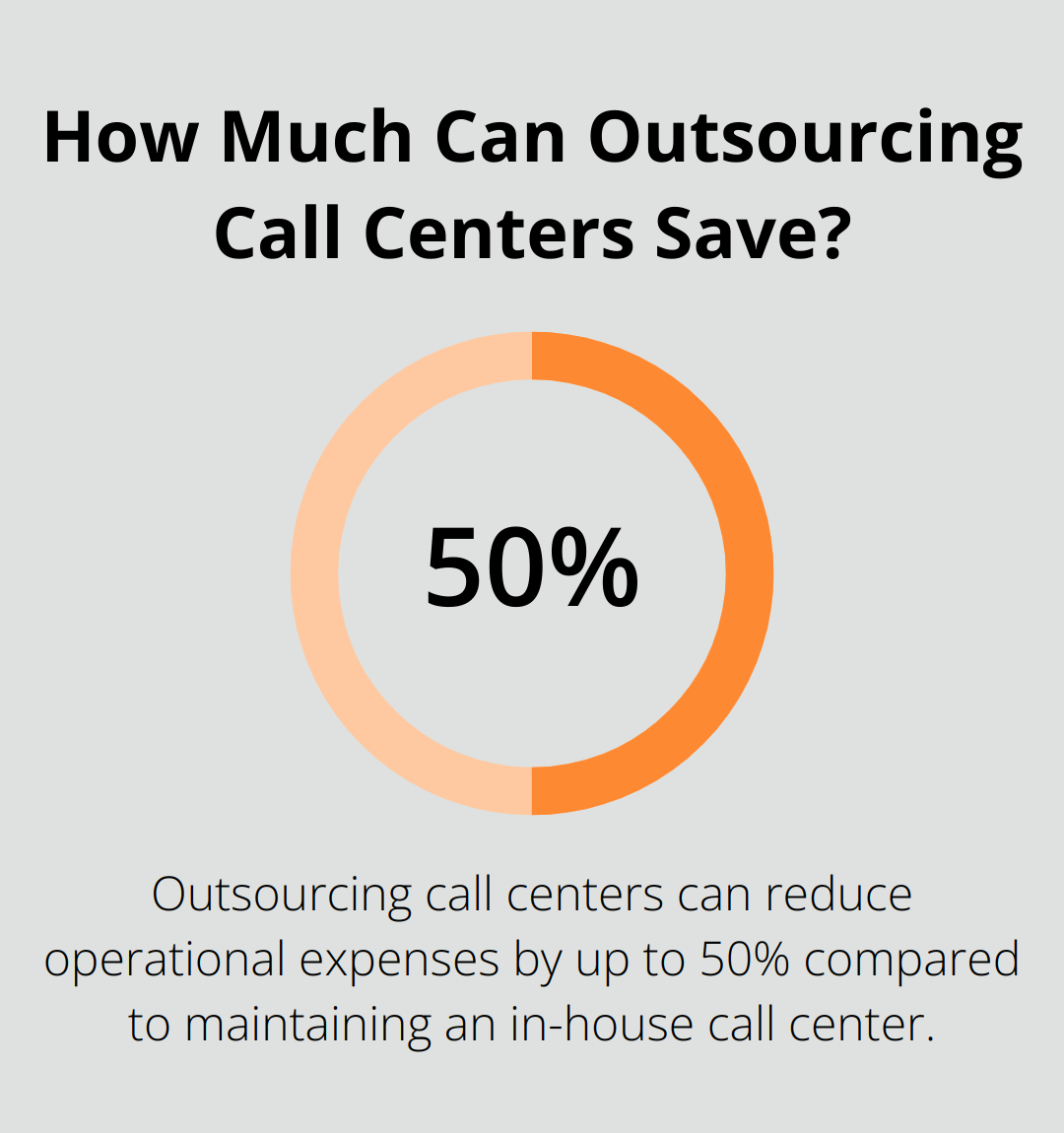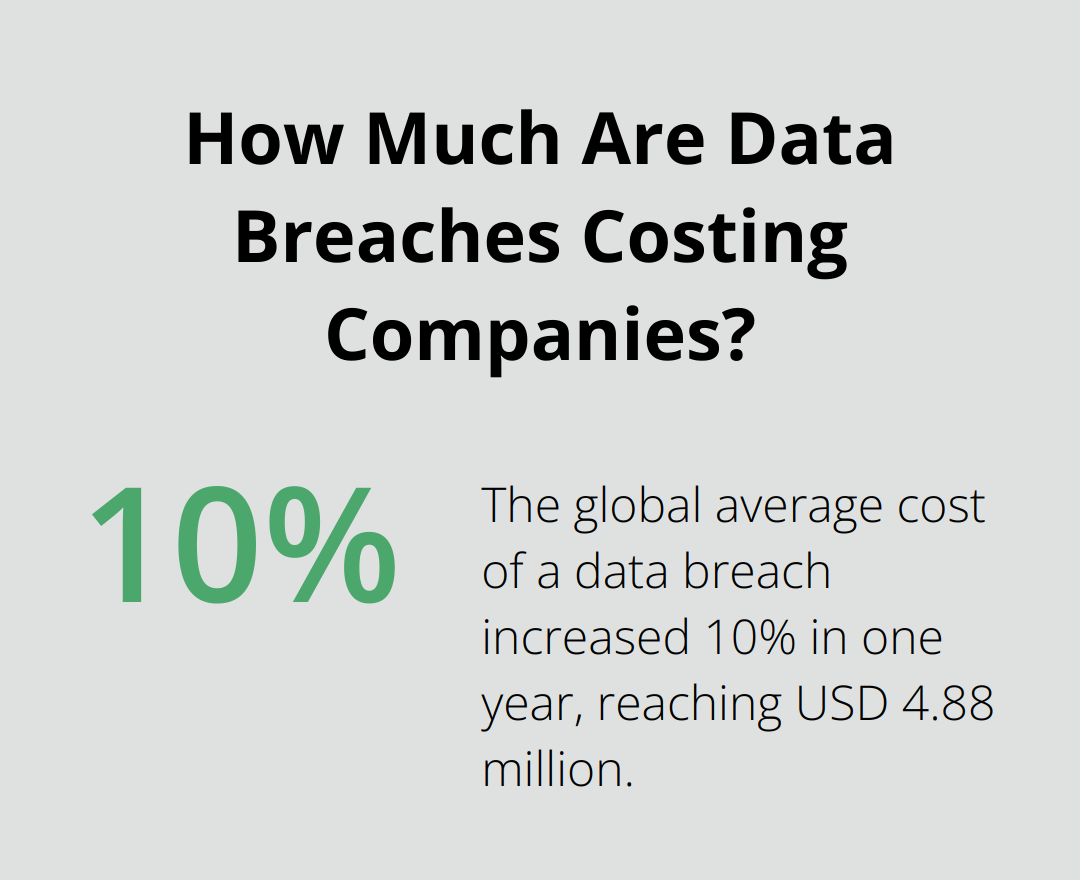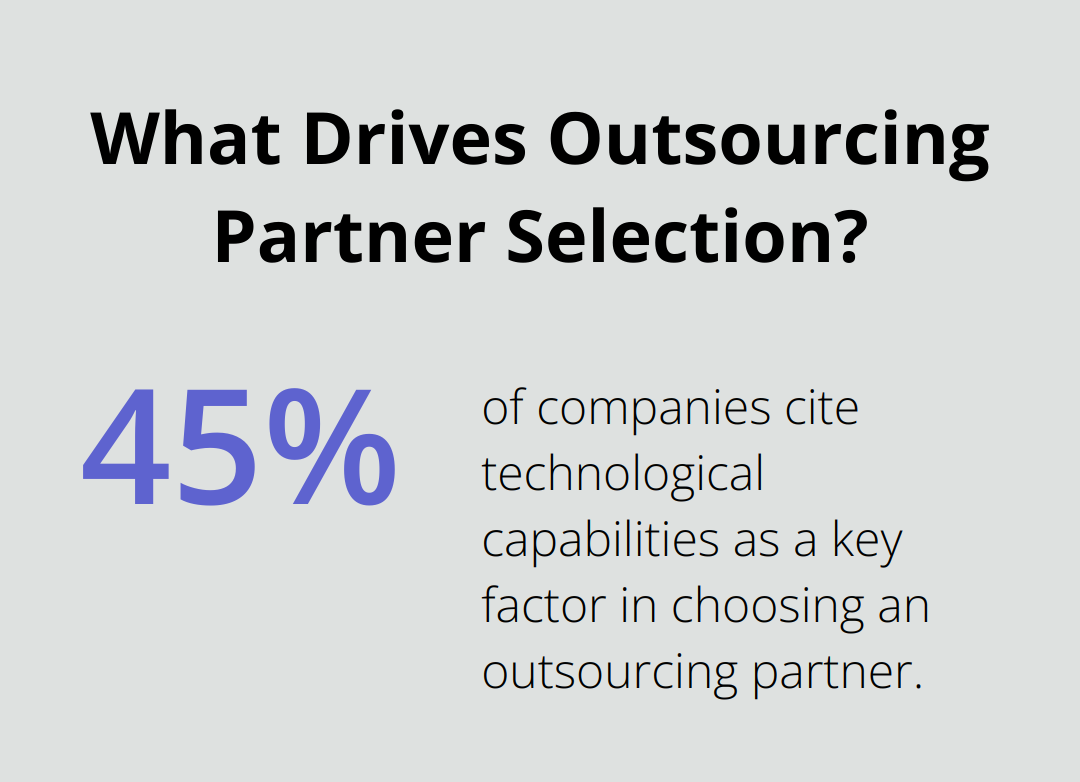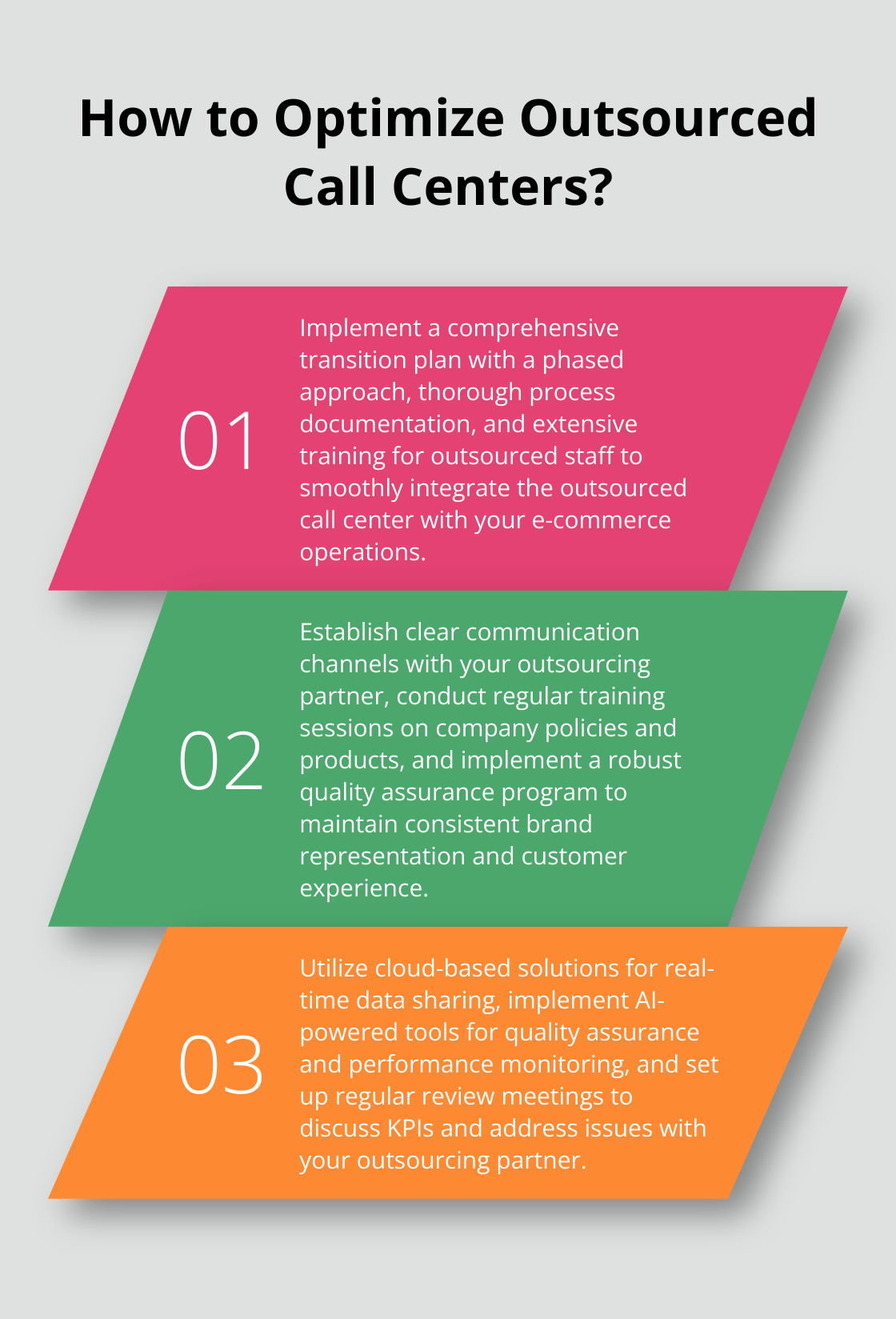Ecommerce call center outsourcing has become a game-changer for online businesses looking to enhance customer support while managing costs. At Outsource Consultants, we’ve seen firsthand how this strategy can transform operations and boost customer satisfaction.
However, like any business decision, it comes with its own set of advantages and challenges. In this post, we’ll explore the pros and cons of outsourcing your ecommerce call center, helping you make an informed choice for your business.
Why Do Ecommerce Businesses Outsource Call Centers?
Ecommerce businesses increasingly turn to outsourcing for their call center operations, and for good reason. This strategy offers multiple benefits that can enhance customer service while optimizing operational efficiency.
Cost Reductions and Flexibility
One of the most compelling reasons for ecommerce companies to outsource their call centers is the potential for substantial cost savings. Partnerships with specialized service providers can reduce operational expenses by up to 50% compared to maintaining an in-house call center. This cost efficiency stems from lower labor costs in certain regions, reduced overhead, and the elimination of expenses related to technology infrastructure and ongoing training.

Outsourcing also provides unparalleled scalability. Ecommerce businesses often experience fluctuating call volumes, especially during peak seasons or promotional periods. Outsourced call centers can quickly adjust staffing levels to meet these changing demands without long-term commitments or the complexities of hiring and training temporary staff.
Cutting-Edge Technology and Expertise
Outsourcing partners invest heavily in the latest customer service technologies, which many ecommerce businesses might find cost-prohibitive to implement on their own. These advanced systems often include AI-powered chatbots, sophisticated CRM software, and omnichannel communication platforms. E-commerce companies can provide a more seamless and efficient customer experience by leveraging these tools.
Reputable outsourcing providers employ customer service professionals with specialized skills in ecommerce support. These experts handle common issues such as order tracking, returns processing, and product inquiries, ensuring that customers receive knowledgeable and efficient assistance.
Round-the-Clock Global Support
In the world of ecommerce, customers expect support at any time of day or night. Outsourcing allows businesses to offer 24/7 customer service, which can significantly boost customer satisfaction and loyalty. This continuous availability can lead to increased sales and repeat business, as well as improved brand reputation.
Many outsourcing providers offer multilingual support, which is essential for ecommerce businesses with a global customer base. Ecommerce companies can effectively expand their reach and improve customer experiences across different markets by partnering with a provider that offers support in multiple languages.
These benefits often lead to marked improvements in customer satisfaction scores and operational efficiency for ecommerce businesses. While the decision to outsource requires careful consideration, the potential advantages (cost savings, technological advancement, and global reach) make it an attractive option for many online retailers looking to enhance their customer service capabilities.
The next section will explore potential drawbacks that businesses should consider when contemplating ecommerce call center outsourcing.
What Are the Risks of Ecommerce Call Center Outsourcing?
Ecommerce call center outsourcing offers numerous benefits, but it also presents potential challenges. Understanding these risks helps businesses make informed decisions and implement strategies to mitigate them effectively.
Loss of Direct Customer Interaction
Outsourcing customer service means relinquishing some control over customer interactions. This can result in:
- Inconsistencies in brand messaging
- Lower customer personalization
- Reduced ability to gather direct customer feedback
Solution: To maintain control, businesses should establish clear communication channels with their outsourcing partners. Regular training, quality assurance programs, and real-time monitoring ensure consistent service standards.

Cultural and Linguistic Hurdles
Despite efforts to provide multilingual support, cultural nuances and language barriers can still pose challenges. Misunderstandings or miscommunications can lead to customer frustration and potentially damage brand reputation.
Solution: Choose an outsourcing provider that aligns with your brand values and trains agents in cultural nuances. Implementing real-time translation tools and thorough language assessments can enhance communication quality.
Data Security and Privacy Risks
With the increasing focus on data protection, outsourcing call center operations raises concerns about data security and privacy. The global average cost of a data breach increased 10% in one year, reaching USD 4.88 million.
Solution: Businesses must partner with providers that comply with GDPR, PCI DSS, and other relevant regulations. Implementing end-to-end encryption, strict access controls, and routine security audits can protect sensitive data.
Transition and Integration Challenges
Migrating to an outsourced call center can be complex, potentially disrupting operations if not managed properly.
Solution: Develop a comprehensive transition plan, including:
- Phased implementation to reduce service disruptions
- Detailed process documentation for knowledge transfer
- Project management tools to oversee progress and identify issues proactively
While these challenges may seem daunting, they are not insurmountable. The key to successful ecommerce call center outsourcing lies in selecting the right partner and maintaining a proactive approach to managing the relationship. In the next section, we’ll explore best practices that can help businesses navigate these challenges and maximize the benefits of outsourcing their call center operations.
How to Master Ecommerce Call Center Outsourcing
Set Clear Objectives and Expectations
To start your outsourcing journey, you must define your goals. Do you want to reduce costs, improve customer satisfaction, or expand service hours? Quantify these objectives. Try to achieve a specific percentage reduction in operational costs or a target increase in customer satisfaction scores.

Outline your expectations for the outsourcing partner. This includes performance metrics like average handling time, first call resolution rates, and customer satisfaction scores. Be specific – if you expect a 95% customer satisfaction rate, state it clearly.
Choose the Right Outsourcing Partner
Selecting the right ecommerce call center partner is crucial. Look for providers with:
- A proven track record in ecommerce customer service
- Case studies and client references
- Advanced technological capabilities (omnichannel support, CRM integration)
- Cultural alignment and strong language proficiency
A Deloitte study found that 45% of companies consider technology a key factor in choosing an outsourcing provider. Ensure your partner can integrate seamlessly with your existing platforms.
Implement Comprehensive Training and Quality Control
After you select a partner, invest time in thorough training. Provide detailed information about your products, services, and brand guidelines. Create a comprehensive knowledge base that agents can easily reference.
Implement rigorous quality control measures. Regular call monitoring, customer feedback analysis, and performance reviews are essential. McKinsey reports that companies can use data and analytics to truly understand customer needs and improve customer satisfaction.
Don’t limit yourself to initial training. Continuous learning and development programs keep agents updated on new products, policies, and best practices. This ongoing investment improves service quality and customer satisfaction.
Leverage Technology for Seamless Integration
Utilize cloud-based solutions to enable real-time data sharing between your in-house team and outsourcing partner. Consider:
- AI-driven quality assurance tools
- CRM and ticketing system integration
- Real-time analytics for performance tracking
Continuously Monitor and Optimize Performance
Schedule regular performance reviews with your outsourcing provider. Analyze Key Performance Indicators (KPIs) to identify improvement areas. Provide constructive feedback and recognition to maintain high service levels and employee motivation.
Final Thoughts
Ecommerce call center outsourcing offers both opportunities and challenges for online businesses. Companies can achieve cost savings, access specialized skills, and provide round-the-clock customer support. However, they must also address reduced control over customer interactions, cultural barriers, and data security concerns. A strategic approach to outsourcing will help businesses maximize benefits while minimizing potential risks.

The landscape of ecommerce customer support continues to evolve rapidly. AI and automation now play significant roles, complementing human agents to provide more efficient and personalized customer experiences. Advanced analytics and predictive modeling enable businesses to anticipate customer needs and proactively address issues (this shift allows outsourced call centers to focus on complex, high-value interactions requiring human empathy and problem-solving skills).
Businesses considering ecommerce call center outsourcing should partner with experienced advisors to navigate the complexities. Outsource Consultants specializes in optimizing call center services and AI technology, offering tailored solutions that align with client culture and business needs. Their expertise can help ensure a smooth transition and maximize the benefits for your ecommerce business.
Frequently Asked Questions (FAQs) on Ecommerce Call Center Outsourcing
1. What are the cost savings of outsourcing an ecommerce call center?
Outsourcing can reduce operational costs by up to 50%, thanks to lower labor costs, reduced overhead, and technological efficiencies.
2. How can businesses ensure quality when outsourcing customer support?
Establish clear performance metrics, provide continuous training, and implement robust quality assurance measures such as call monitoring and customer feedback analysis.
3. What security measures should an outsourced call center have?
Look for compliance with GDPR, PCI DSS, and data encryption protocols to ensure secure handling of customer information.
4. Can outsourced call centers handle multilingual support?
Yes, many providers offer multilingual support, enabling businesses to serve international customers effectively.
5. What technologies improve outsourced call center performance?
AI-powered chatbots, omnichannel CRM systems, and real-time analytics enhance efficiency, personalization, and overall customer experience.






